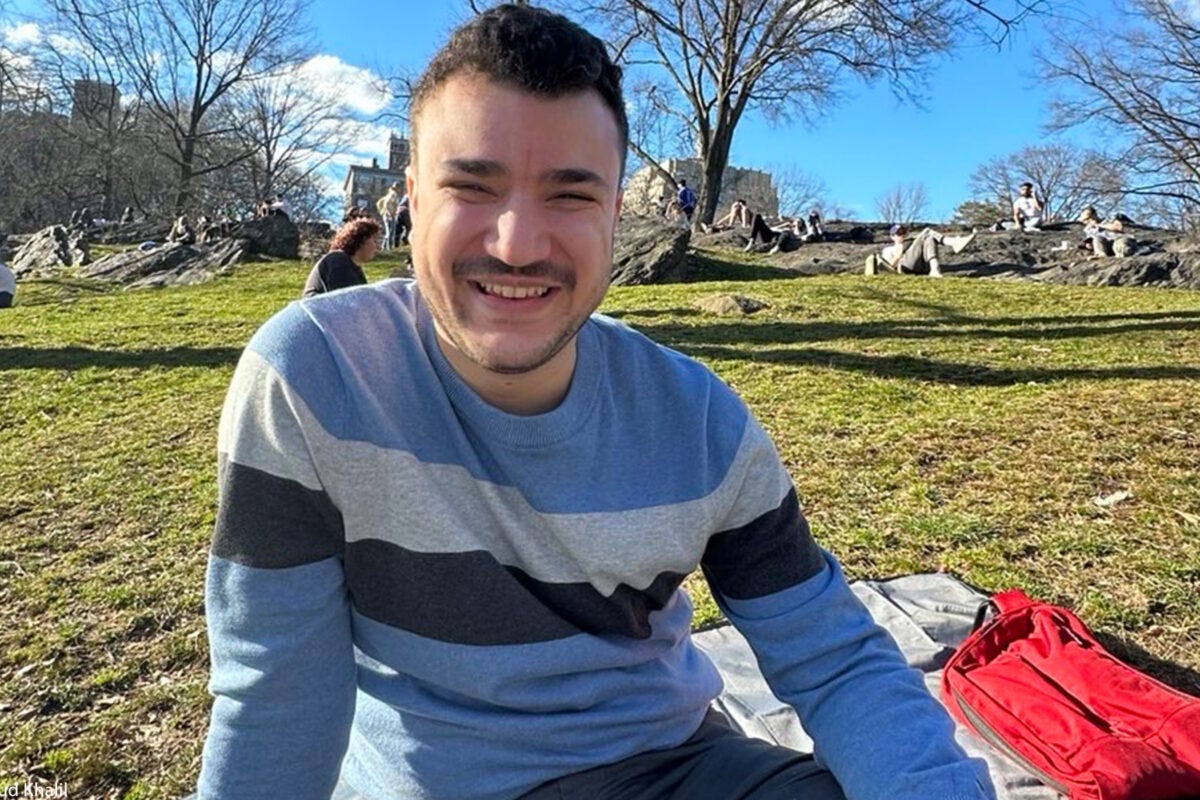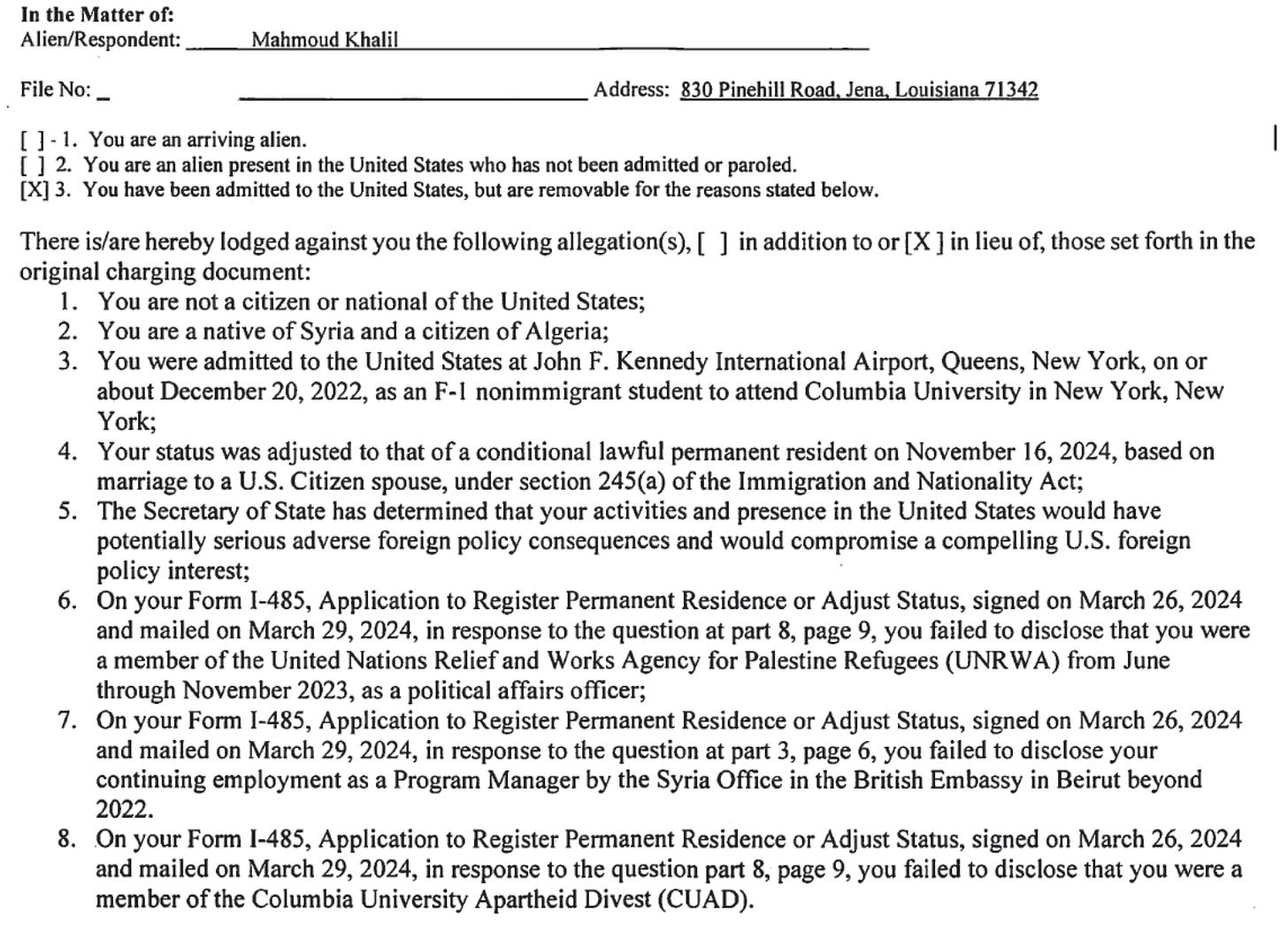What’s at Stake in Today’s Mahmoud Khalil Hearing
In New Jersey, a judge may rule on venue and bail for Khalil.
Lawyers for the detained Columbia University student protest organizer Mahmoud Khalil will appear in federal court in New Jersey this morning to argue against the U.S. government’s attempt to transfer the case to Louisiana, where Khalil is currently detained. The judge may also rule on a motion by Khalil’s lawyers to grant him bail.
William Turton Blog will be in the courtroom and will provide an update after the hearing concludes. Please consider becoming a paid subscriber to support this kind of work.
For now, here’s what’s at stake today.
The decision by Judge Michael Farbiarz could have implications beyond the Khalil case. If the U.S. government is successful in getting this case transferred to Louisiana, it may set a precedent that makes it easier for other cases—particularly those involving individuals the Trump administration is attempting to deport for pro-Palestine speech—to be moved there as well.
“The fact that they’re transferring people is just part and parcel of the retaliatory policy that they’re carrying out,” Esha Bhandari of the ACLU, and a lawyer for Khalil, told William Turton Blog. “It sends a message to anyone considering whether to write an op-ed, attend a protest, or say something the government doesn’t like on this issue: think twice. Not only might you be arrested and detained—they will remove you thousands of miles away from your friends, family, and possibly your lawyers as well.”
Khalil, who is a legal permanent resident of the United States, has not been charged with a crime.
Below is the entirety of the government’s stated reason for why Khalil should be deported. The Government’s original argument, which it continues to allege, is that Khalil’s mere presence in the United States would have “adverse foreign policy consequences,” and thus he should be reported. The Government has expanded its argument to allege Khalil failed to disclose his work with the United Nations and the British Embassy on immigration paperwork.
“My arrest was a direct consequence of exercising my right to free speech as I advocated for a free Palestine and an end to the genocide in Gaza,” Khalil wrote in a letter from jail.
Since Khalil’s arrest on March 8, his lawyers and the U.S. government have primarily been arguing over the venue in which the case will be heard. The merits of Khalil’s arrest and potential deportation—including the significant First Amendment implications—have not yet been ruled on by a judge and likely won’t be today.
Last week, a New York judge transferred the case to New Jersey. That determination was made primarily because Khalil was in ICE custody in New Jersey at 4:40 a.m. on March 9, when his lawyer first filed a writ of habeas corpus.
Still, the government is pushing to once again move the case—this time to a more conservative court, where it may be more likely to prevail. That’s despite the fact that Khalil studied and lived in New York and has no connection to Louisiana.
(For more information, here is a detailed timeline of Khalil’s arrest and how it influenced where this case will be heard.)


